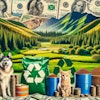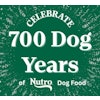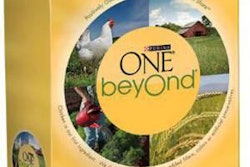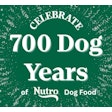A recent article in The Vancouver Sun looks at the history of petfood and increasing popularity of raw petfood diets, as a recent report by Mintel points out that nine of 10 pet owners say they view their pet as "family members," and so, look to feed their pets the best diet possible.
"Anthropomorphism of pets has an increased effect on the dietary aspects of commercial petfoods including ingredient selection and nutritional composition," said animal science researcher, Kelly Swanson of the University of Illinois.
Swanson said that raw food has become increasingly popular because some pet owners do not want animal byproducts in their pet's food, demanding real meat instead. This also impacts sustainability because "petfoods compete now directly with human consumption."
Another change over the years is that companies are selling petfood products with a higher protein content, the article notes. Swanson said some diets contain 40-60 percent protein up to as much as nearly 90 percent.
"The raw food diet is fairly controversial. I have friends who feed their pets raw food and their pets are fine. But it's a tricky thing to do, and people forget about the issue of sustainability. They'll recycle their cans on one hand, but food shortages in some countries are not on their radar when they are dealing with their pets' food," said Swanson.
"Dogs are living longer, healthier lives because of how much healthier the dry kibble diets are now from reputable food manufacturers," said Dr. Rebecca Ledger, an animal behaviorist in Vancouver, Canada.

















